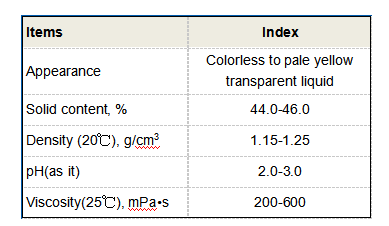Effective Flocculant Chemicals for Water Treatment Solutions and Their Applications
The Role of Flocculant Chemicals in Water Treatment
Water is an essential resource for life, and ensuring its purity and safety is paramount. As urbanization and industrial processes continue to escalate, the demand for effective water treatment solutions grows. One of the most vital components in the treatment of wastewater and drinking water is the use of flocculant chemicals. These substances play a critical role in enhancing the efficiency of water purification processes.
Flocculants are chemical agents that promote the agglomeration of small particles into a floc, or a clump of particles. This process, known as flocculation, is fundamental in water treatment as it helps remove suspended solids, turbidity, and colloidal particles from water. Flocculants come in various types, including organic and inorganic compounds, each with distinct properties and applications.
One of the most commonly used flocculants is polyacrylamide, a synthetic organic polymer. It is particularly effective in treating municipal wastewater, industrial effluents, and in various applications within the pulp and paper industry. Polyacrylamide operates by neutralizing the charge on suspended particles, which facilitates their aggregation into larger flocs that can then be easily removed through sedimentation or filtration.
Inorganic flocculants, such as aluminum sulfate (alum) and ferric chloride, are also widely used. These compounds work by destabilizing the colloidal particles in water through charge neutralization. The flocculation process that they promote is rapid and effective, making them well-suited for various drinking water treatment applications. Alum, for instance, has been a traditional choice for drinking water purification, as it is cost-effective and readily available.
flocculant chemicals for water treatment

The effectiveness of flocculant chemicals in water treatment is often enhanced through the adjustment of pH levels and the addition of coagulants. Coagulation is the initial step that precedes flocculation, where coagulants, usually inorganic, are added to destabilize the particles. This produces microflocs that can grow larger when flocculants are added, significantly improving remove efficiency.
The environmental and health impacts of using flocculants are notable concerns in water treatment practices. Although polymeric flocculants, when used properly, can improve water quality, there is a growing push towards the use of more sustainable and eco-friendly alternatives. Natural flocculants derived from plant materials, such as starches or chitosan, are being explored due to their biodegradable properties and lower toxicity. This shift towards natural products highlights the industry's response to environmental concerns and the necessity for sustainable practices.
Another area of continued research is the optimization of flocculant dosing. Too much flocculant can lead to negative effects such as the increase of residual chemicals in treated water, while too little can cause inadequate floc formation. Therefore, effective monitoring and precise dosing of flocculants are vital to maximize treatment efficiency and minimize environmental impact.
In conclusion, flocculant chemicals are indispensable in the field of water treatment, playing a crucial role in clarifying water by aggregating suspended particles for easy removal. With ongoing innovations and a focus on sustainability, the future of flocculant usage in water treatment looks promising, ensuring safer and cleaner water for both drinking and ecological needs. As we advance, balancing efficiency with environmental care will be key in shaping water treatment practices worldwide.
-
Water Treatment with Flocculant Water TreatmentNewsJun.12,2025
-
Polymaleic AnhydrideNewsJun.12,2025
-
Polyaspartic AcidNewsJun.12,2025
-
Enhance Industrial Processes with IsothiazolinonesNewsJun.12,2025
-
Enhance Industrial Processes with PBTCA SolutionsNewsJun.12,2025
-
Dodecyldimethylbenzylammonium Chloride SolutionsNewsJun.12,2025





